At Kew Park, we offer both casa and elementary programmes, as well as, before and after school childcare. Our Montessori curriculum is enriched with our extensive specialist subjects as well.
Casa
Our casa programme for 3, 4 and 5 year-old children prepares them to reach their full potential in all areas of life. In our calm and happy classrooms, students blossom academically, socially, physically and emotionally. Casa students are grouped in mixed age groups of 3 to 5 years. This multi-age grouping encourages community, mentorship and emotional development. Younger children are inspired to do more advanced work by having older children working in the same environment. Older children, meanwhile, learn how to be leaders and reinforce their own knowledge by sharing it with younger ones.

The prepared classroom environment and the use of concrete Montessori learning materials provide children the opportunity to work independently and concretely to develop their senses as they move towards abstract thinking. The complex and extensive Montessori curriculum spans three years and children learn at their own pace and according to their own abilities. During the three years, teachers have the opportunity to really get to know their students and identify individual learning styles.
Our casa curriculum is based on the following areas of learning:
- Practical Life
- Sensorial
- Language
- Math
- Cultural
The Practical Life component of our Montessori casa curriculum is the foundation for success in all other areas. Our Practical Life curriculum supports and facilitates children in their innate desire to become independent and take care of their needs and those of their environment. Specific tasks enable your child to gain independence and develop a sense of order, coordination, an ability to concentrate and a sense of responsibility. Our Practical Life curriculum includes exercises that develop your child’s fine motor skills, preparing him/her to work with writing tools. It also includes lessons in grace and courtesy that will enable your child to have the social interactions that underlie good interpersonal relationships.
The Sensorial curriculum uses scientifically designed materials that isolate and sharpen each sense to support development of the intellect through hands-on exploration in the following areas: visual, tactile, auditory, gustatory, olfactory and baric. Our Montessori Sensorial curriculum trains children to discriminate and order the impressions received through each of their senses. Your child will learn to separate and classify forms, colours, textures, tastes, sounds and smells. This prepares them for more complex learning in language, math and cultural studies.
 Our Language curriculum is designed to meet your child’s innate need to acquire language. The enrichment of language skills is deeply embedded in the Montessori approach, and is a focal point of lessons in all of the other curriculum areas. Using Montessori materials, your child will acquire a rich vocabulary for labelling, describing, comparing and contrasting the environment and the people in that environment with precise terminology.
Our Language curriculum is designed to meet your child’s innate need to acquire language. The enrichment of language skills is deeply embedded in the Montessori approach, and is a focal point of lessons in all of the other curriculum areas. Using Montessori materials, your child will acquire a rich vocabulary for labelling, describing, comparing and contrasting the environment and the people in that environment with precise terminology.
 The children are introduced to the sounds of the alphabet through the sandpaper letters. With their sounds mastered, they begin to build words and read phonetically. Additional language materials teach phonograms, puzzle words and other language conventions. Written language is introduced to children through progressive exercises that lead them to early levels of competence in writing skills.
The children are introduced to the sounds of the alphabet through the sandpaper letters. With their sounds mastered, they begin to build words and read phonetically. Additional language materials teach phonograms, puzzle words and other language conventions. Written language is introduced to children through progressive exercises that lead them to early levels of competence in writing skills.
Discussion is encouraged and the children are given the appropriate language to engage in a meaningful exchange as they work. Small group and circle activities are organized on a daily basis. These are opportunities for the children to enjoy a wide variety of language activities that enrich their oral expression and strengthen their listening skills.
Our Math curriculum is firmly based on learning through experience. As with all elements of the curriculum, children build on what they already know and systematically progress from the concrete to the abstract. They discover number patterns, sequences and rules by handling the materials.
 To begin, children use a wide variety of materials that lead them to understand the value and sequence of numbers from 1 to 10. Once they have mastered this, they are introduced to larger quantities and learn the decimal system by making groups of units, tens, hundreds and thousands. Number notation and place value are taught as the child demonstrates readiness. They are introduced to the basic operations: addition, multiplication, subtraction and division at a concrete level so that they experience what these activities really mean. Gradually, they move toward an abstract understanding of the concepts.
To begin, children use a wide variety of materials that lead them to understand the value and sequence of numbers from 1 to 10. Once they have mastered this, they are introduced to larger quantities and learn the decimal system by making groups of units, tens, hundreds and thousands. Number notation and place value are taught as the child demonstrates readiness. They are introduced to the basic operations: addition, multiplication, subtraction and division at a concrete level so that they experience what these activities really mean. Gradually, they move toward an abstract understanding of the concepts. Our Cultural curriculum explores areas of science, social studies, geography, art and history. Children are exposed to a rich, stimulating variety of work experienced through hands-on learning. Working with the cultural materials helps children become aware that they are part of the greater family of humanity.
Our Cultural curriculum explores areas of science, social studies, geography, art and history. Children are exposed to a rich, stimulating variety of work experienced through hands-on learning. Working with the cultural materials helps children become aware that they are part of the greater family of humanity.
Elementary
 Our elementary programme is for students aged 6 to 12 years (grades one through six). Mixed-age groupings in both our lower elementary (6 to 9) and upper elementary (9 to12) provide rich opportunities for social and intellectual development as students move from a more structured and concrete learning experience to abstract thinking and increased independence and the ability to problem solve.
Our elementary programme is for students aged 6 to 12 years (grades one through six). Mixed-age groupings in both our lower elementary (6 to 9) and upper elementary (9 to12) provide rich opportunities for social and intellectual development as students move from a more structured and concrete learning experience to abstract thinking and increased independence and the ability to problem solve.
 Both lower and upper elementary curriculums span three years. During these periods, teachers develop long-term relationships with students, allowing them to better understand each child’s learning style in order to meet their needs. The multi-age range within the classroom provides opportunities for younger students to learn from older role models and then to move towards a position of leadership as they mature within the family structure of the classroom.
Both lower and upper elementary curriculums span three years. During these periods, teachers develop long-term relationships with students, allowing them to better understand each child’s learning style in order to meet their needs. The multi-age range within the classroom provides opportunities for younger students to learn from older role models and then to move towards a position of leadership as they mature within the family structure of the classroom.
Our integrated curriculum offers students the opportunity to understand the interconnectedness between all things. They learn to collaborate and work together to achieve a real understanding of their schoolwork. Our students develop strong work habits and skills for future academic success.
The Montessori elementary curriculum is comprised of the following areas of study:
- Language
- Math
- Science, Social and Cultural Studies
Our elementary Language programme is a structured and challenging curriculum that develops oral, reading and writing skills. A strong emphasis is placed on writing with daily opportunities to write on a range of topics. Conventions of written language are taught as specific lessons and then applied to the students’ work. Encouraging students to present their projects and read their own stories with confidence, clarity and expression strengthens their oral language skills.

The elementary Math curriculum is firmly based on learning through experience. Children use a wide variety of carefully constructed materials to lead them to an understanding of mathematical operations and concepts. Gradually the child moves from concrete to symbolic math and eventually enjoys and understands abstract math at an advanced level. Elementary students explore mathematical concepts in number sense, geometry, data management, probability, patterning and measurement.

The Science, Social Studies and Cultural curriculum is regarded as the backbone of the elementary classrooms. The integrated curriculum explores history, geography, science and social studies. Students are encouraged to research subjects of interest. There is no limit to the range of projects that can be undertaken and the  students work to their level of ability. They acquire skills for finding information, evaluating it, organizing it and presenting it using a range of strategies such as tables, graphs, charts, maps and timelines. They use their language skills to write, edit and proofread their work. They work collaboratively and share their knowledge.
students work to their level of ability. They acquire skills for finding information, evaluating it, organizing it and presenting it using a range of strategies such as tables, graphs, charts, maps and timelines. They use their language skills to write, edit and proofread their work. They work collaboratively and share their knowledge.

Specialists
Kew Park Montessori Day School offers a rich learning experience for your child. Our academic programme is enhanced by many other subjects such as French, physical education, music, visual arts and dramatic arts.
Childcare
 Childcare, both before and after school, is also available for all students at Kew Park for an additional fee. In the childcare programme, children enjoy playing games and relaxing outdoors, as well as having fun indoors in our childcare room. Our experienced and nurturing staff provide the children with a safe, unstructured experience after full school days.
Childcare, both before and after school, is also available for all students at Kew Park for an additional fee. In the childcare programme, children enjoy playing games and relaxing outdoors, as well as having fun indoors in our childcare room. Our experienced and nurturing staff provide the children with a safe, unstructured experience after full school days.
Hours for extended care are:
Mornings 8:00 a.m. to 8:45 a.m.
Afternoons 3:30 p.m. to 6:00 p.m.

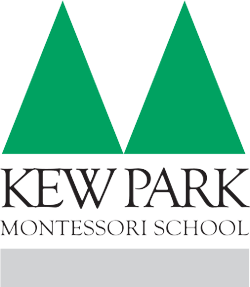
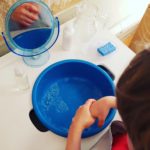
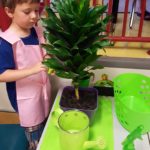
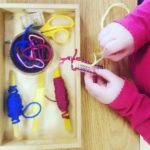
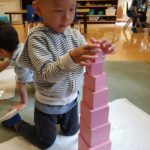

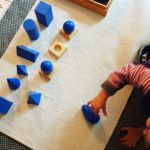
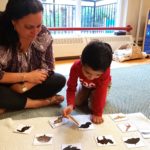
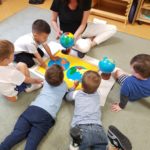
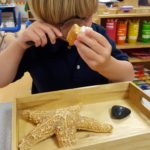
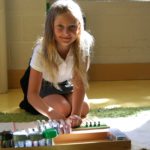
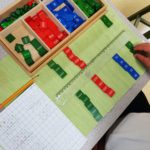
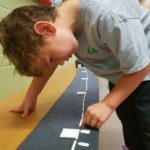
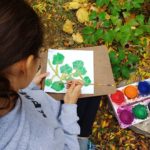
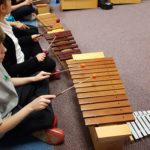
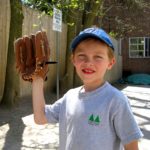

You must be logged in to post a comment.